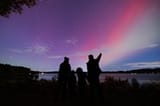Books that Rule
Nonfiction: Organized by genre, subject matter, and whim.

Craft Books (Books about writing processes)
- Steering the Craft by Ursula K LeGuin // For being an excellent jumping off point with exercises, suggestions, and "did you know you could do this?" passages, without ever demanding structure or codal adherence.
- Meander, Spiral, Explode by Jane Alison // For a fresh and feminine perspective on the large-scale structures of narrative that reminds the reader there is more than just the escalation to climax and denouement.
- The Emotional Craft of Fiction by Donald Maass // For digging deeper into the subtext and the maelstrom beneath the surface; human interaction is beautifully messy.
- Craft in the Real World by Matthew Salesses // To reorient critique and the editing process with the perspective of the originator, the cultural uniqueness and individual value brought by not filing off all the edges to fit a story into an Iowa-shaped box.
Politics & History
- Seeing Like A State by James C Scott // Dispelling the presumed importance of organized, "legible" society and forced constructed urbanity, clearing the name of ad-hoc communities of the harm done by despots and state-builders, by showing the flaws in their methods.
- The Sixth Extinction bu Elizabeth Kolbert // Examining the epoch of our own making and what it means for the future by examining the great extinctions of the past.
- The Dawn of Everything by Davids Graeber & Wengrow // A search for the origin of human inequity leads the authors to grapple with the organization of societies stretching back to the first emergence of our species, and even before that. They reject the popular concept that complex, large communities must organize under indirect representation or singular rule.
- Between Equal Rights by China Mieville // A thesis underpinning capitalism with the will to violence as a necessary component for its implementation
- October by China Mieville // For being a detailed account of the Russian Revolution (and its several parts or phases) with more rigor and less zeal than other tomes on the subject.
- For All The Tea In China by Sarah Rowe // Dirty deeds, done at great cost.
Exploration & Discovery
- The Longitude by Dava Sobel // For laying out the little-known history of John Harrison, inventor of the chronograph that revolutionized intercontinental sea travel and saved countless lives as a result.
- Sailing Alone Around The World by Captain Joshua Slocum // A unique perspective of a man who chronicled his real-life journey in the footsteps of Jules Verne, and talked to the Moon.
Conservation & The Natural World
- Other Minds by Peter Godfrey-Smith // In which the concept of consciousness is re-framed in a broader sense through the examples of arthropods, cephalopods, and vertebrates, and presents evidence that human consciousness is not unique.
- The Brilliant Abyss by Helen Scales // For presenting the beauty and awe of the deep sea and the life that lives in those places more unknown to us than the Moon, and the threats posed to it by human greed.
- The Humboldt Current by Aaron Sachs // For reviving the memory of one of America's—and, in fact, humanity's—18th century eco-heroes whose ideas sparked daring expeditions and breathtaking paintings, whose outspoken rejection of racism and empire made him the enemy of leading political figures as powerful as Napoleon.
- The Silent World by Jacques Cousteau // The original aqua-man's passionate tale of his love for the sea.





